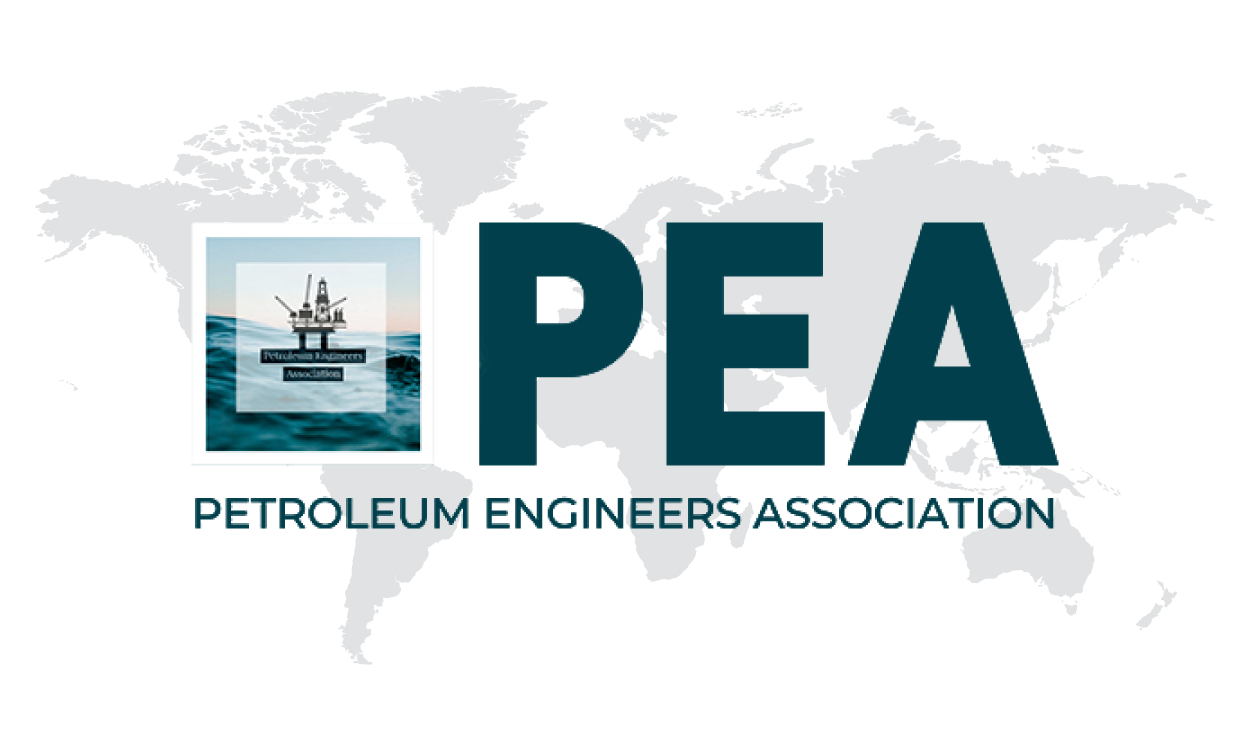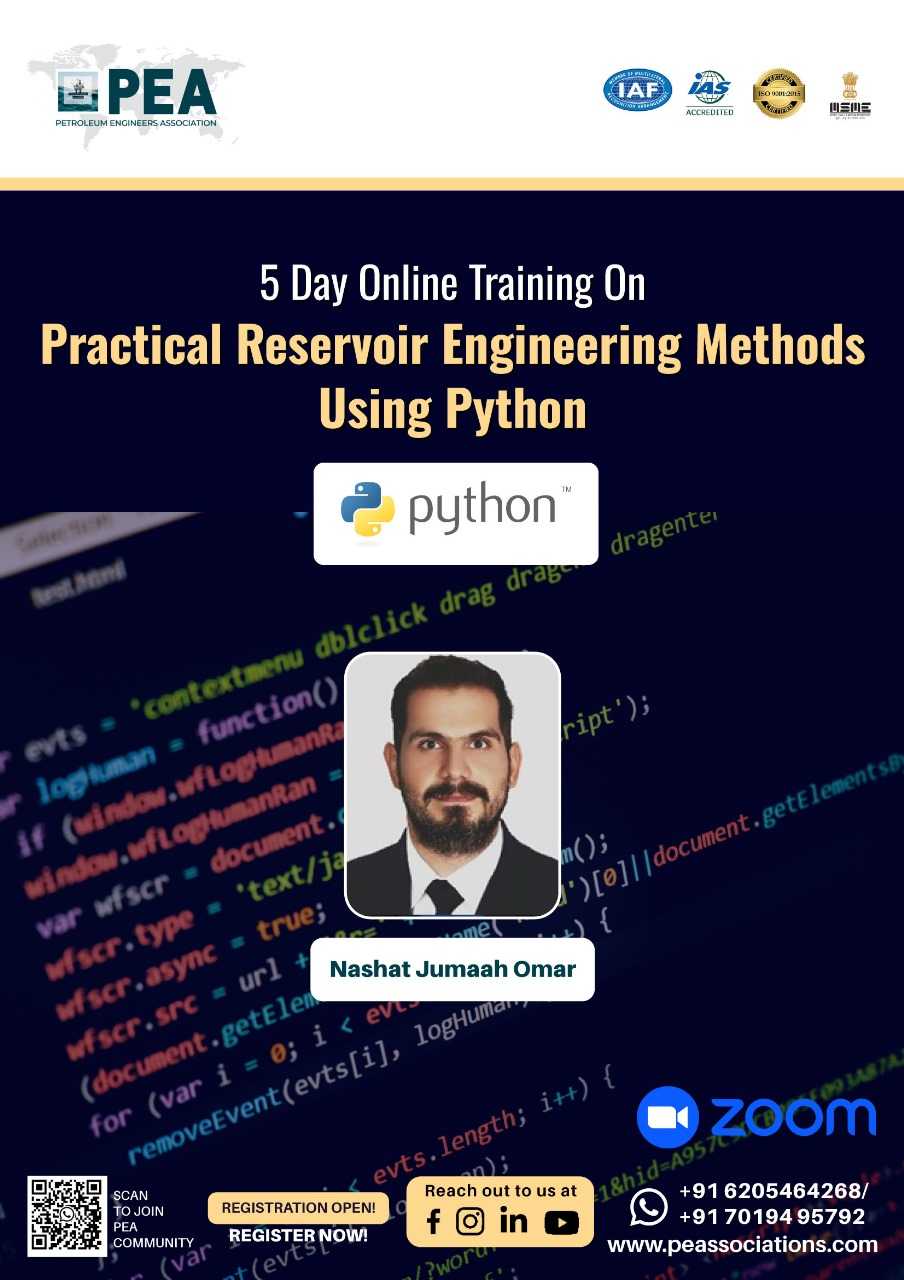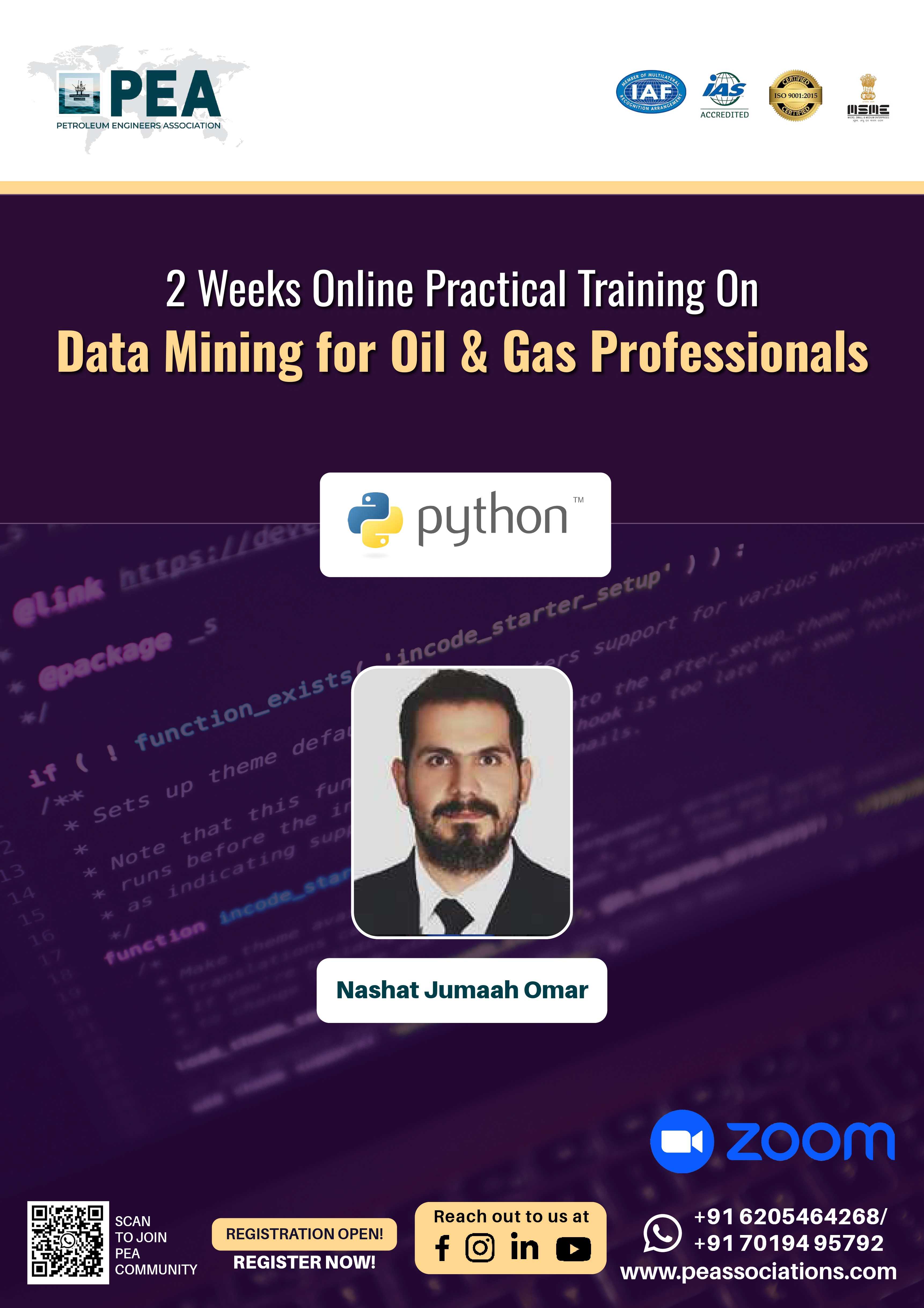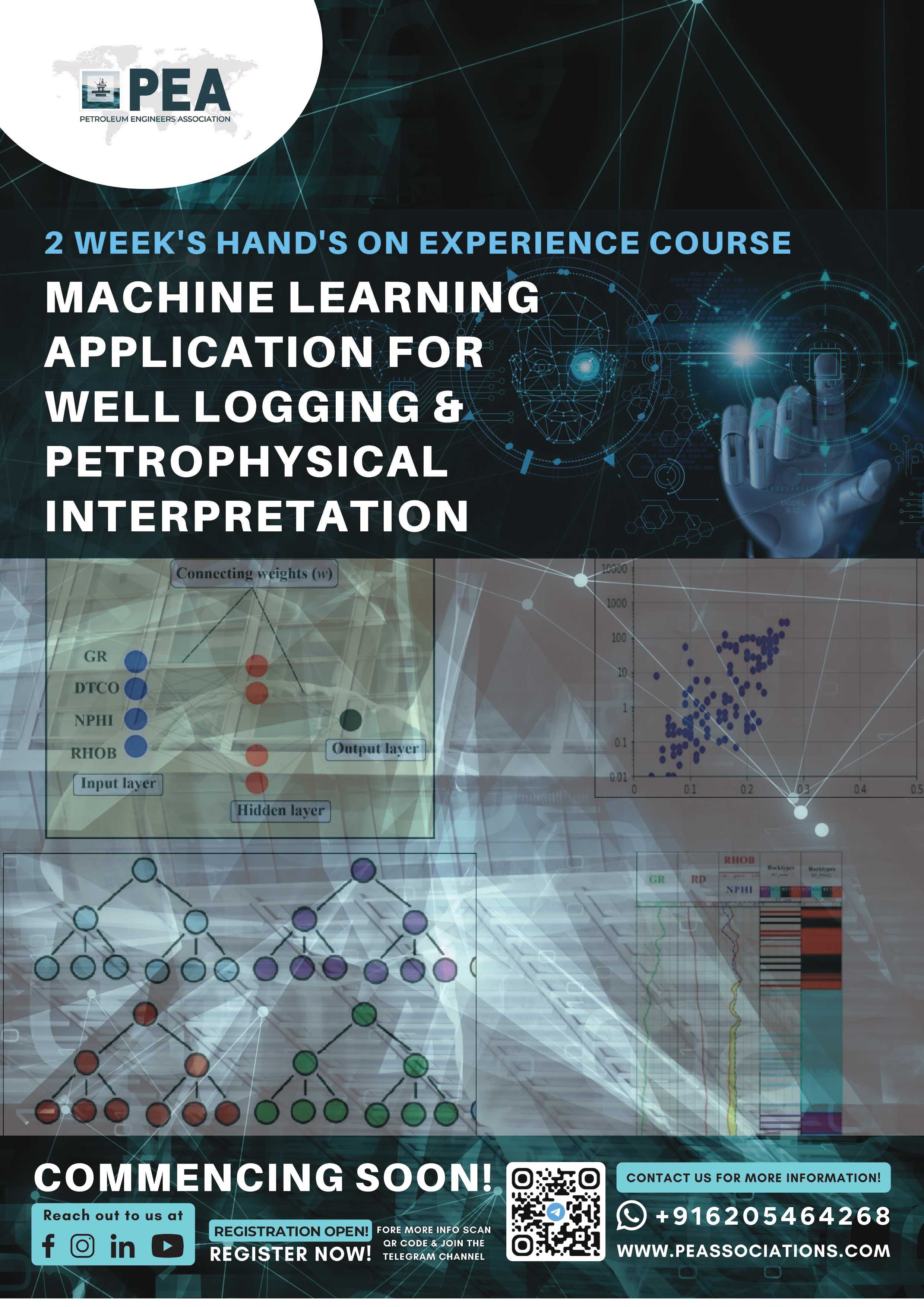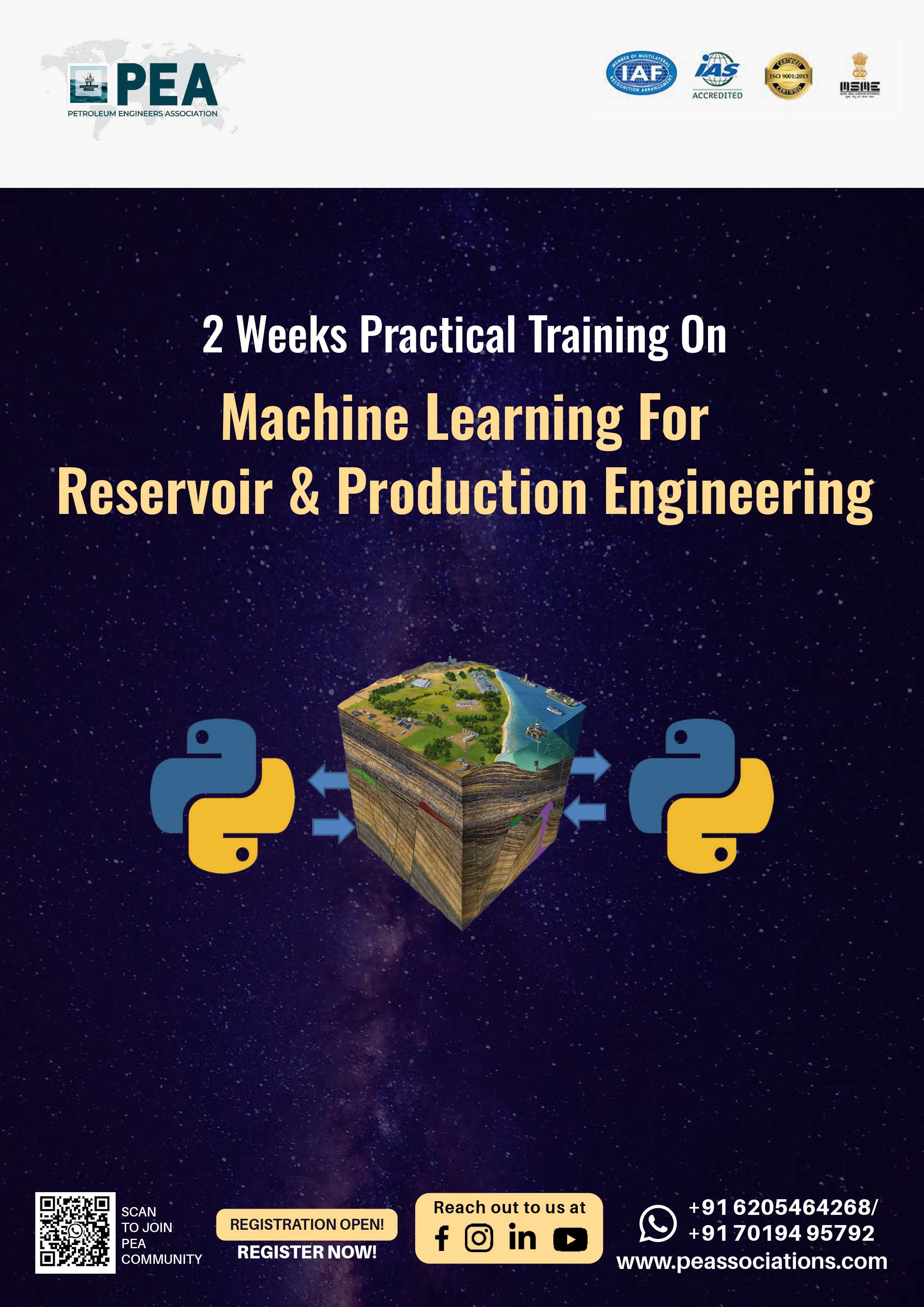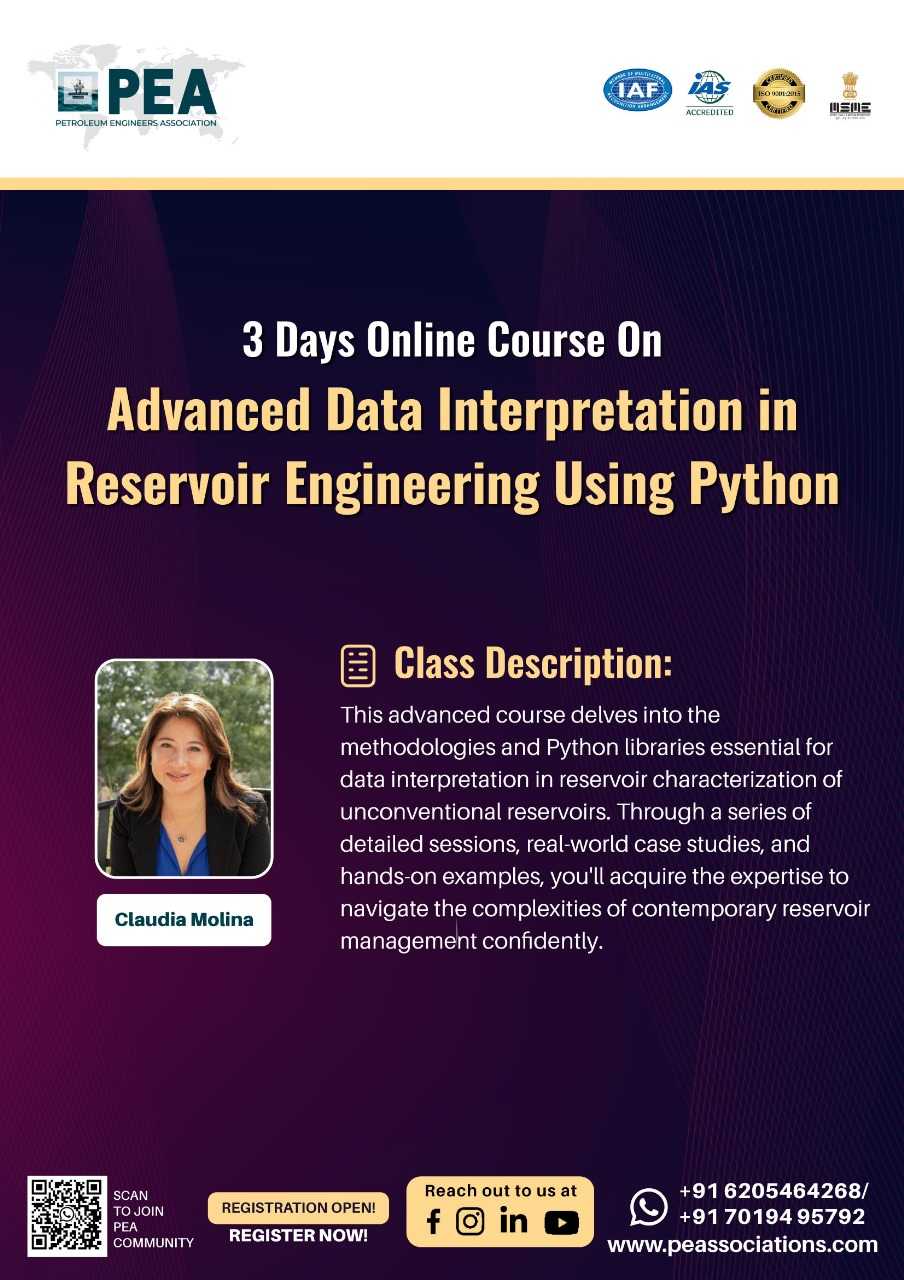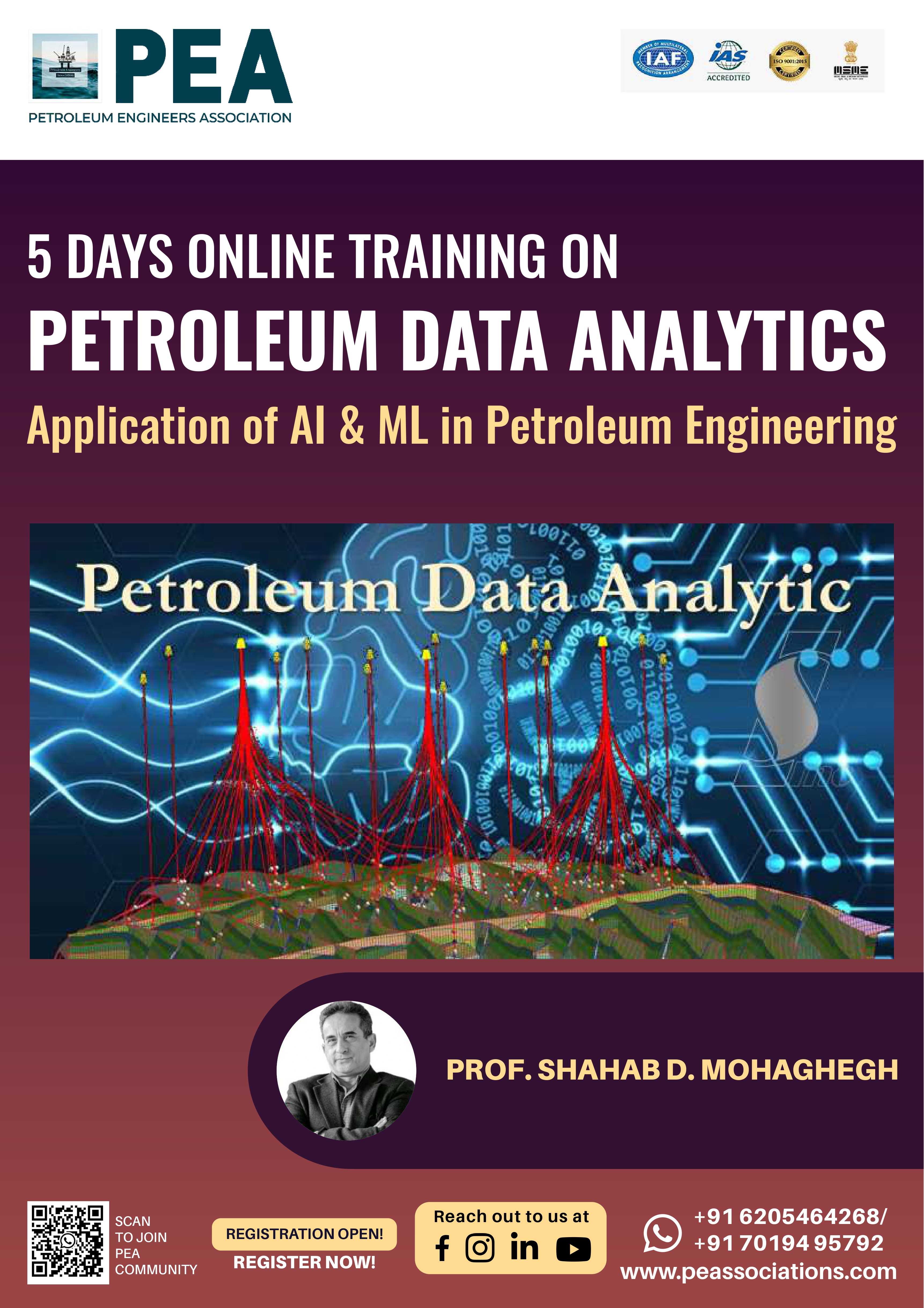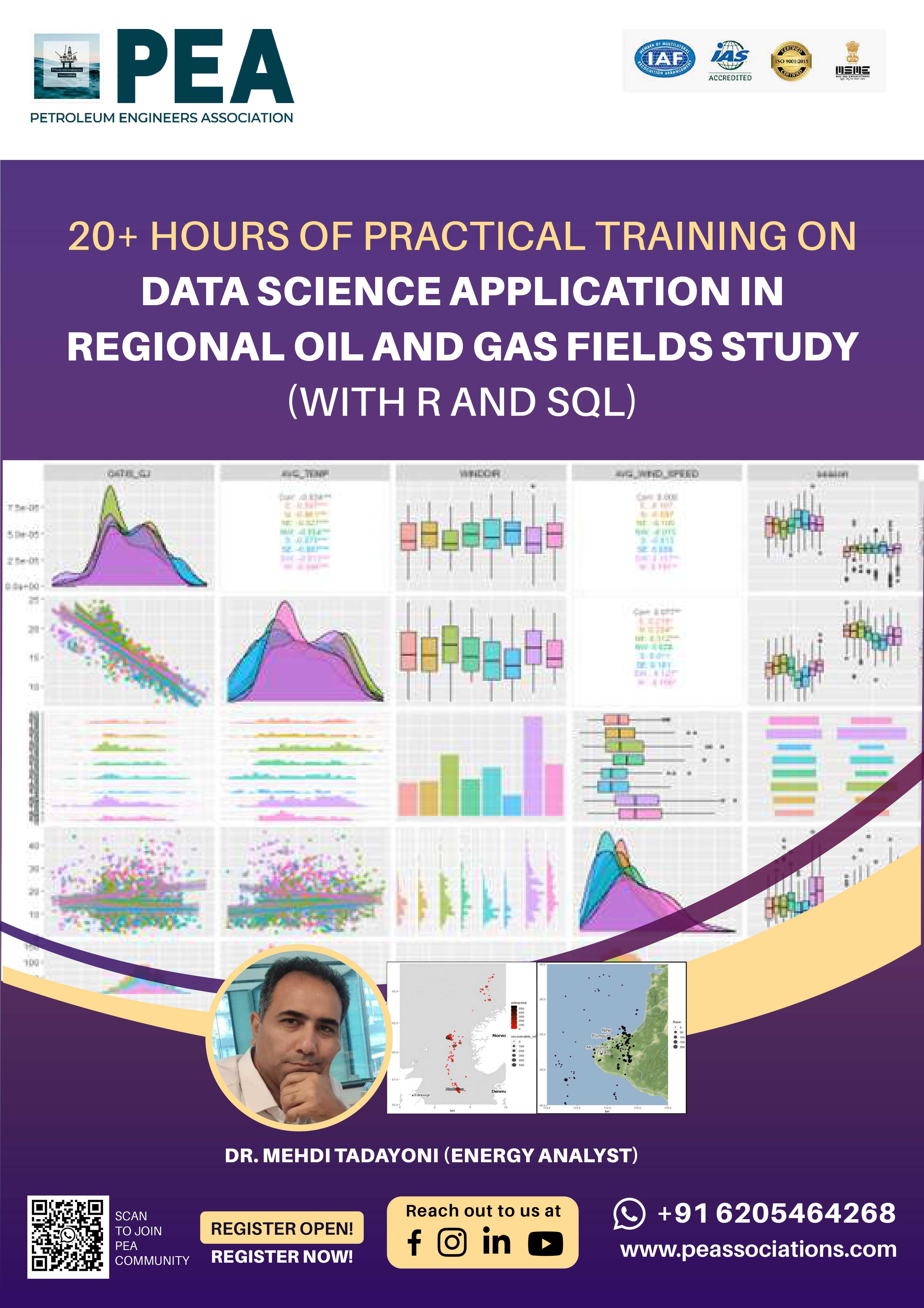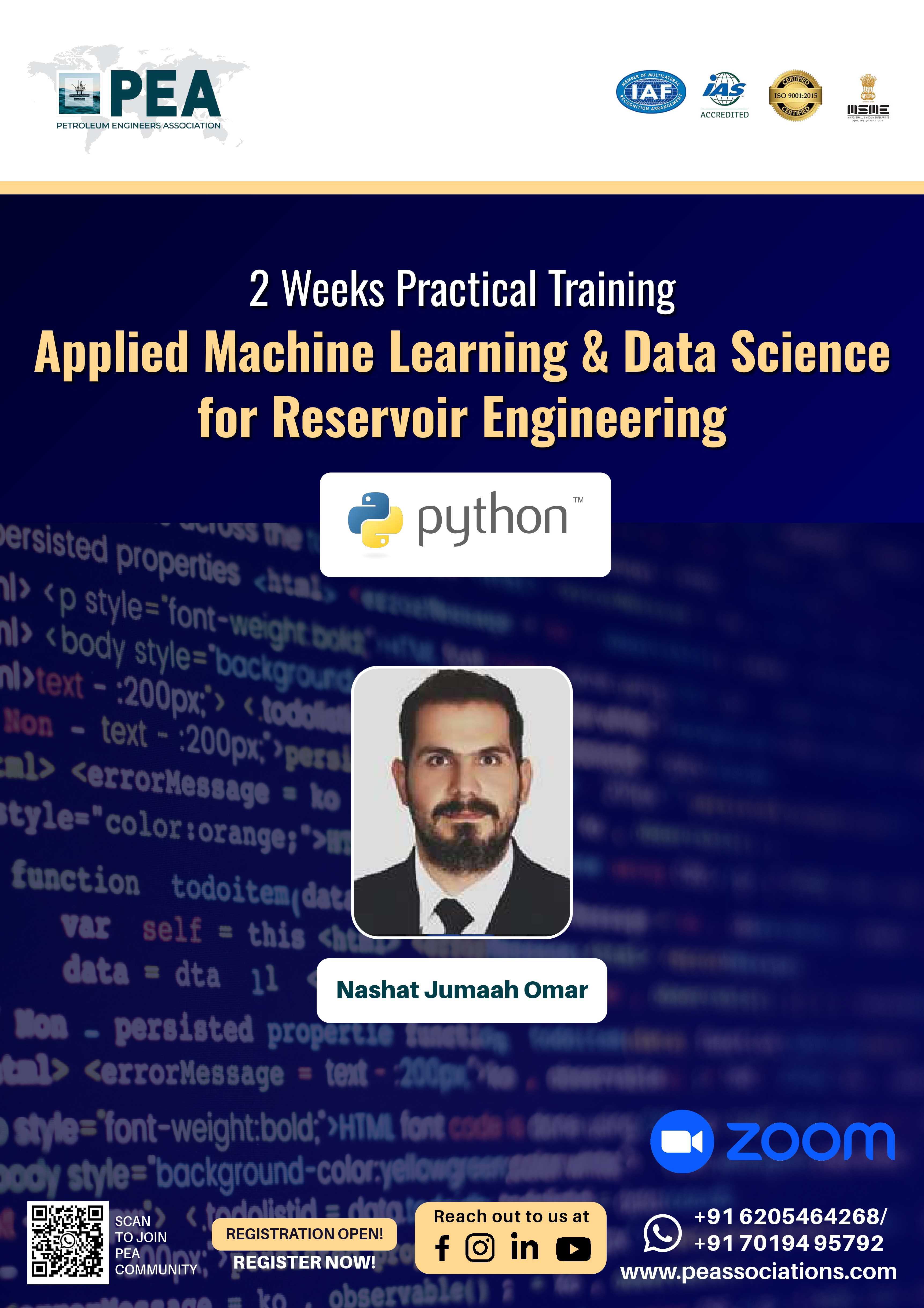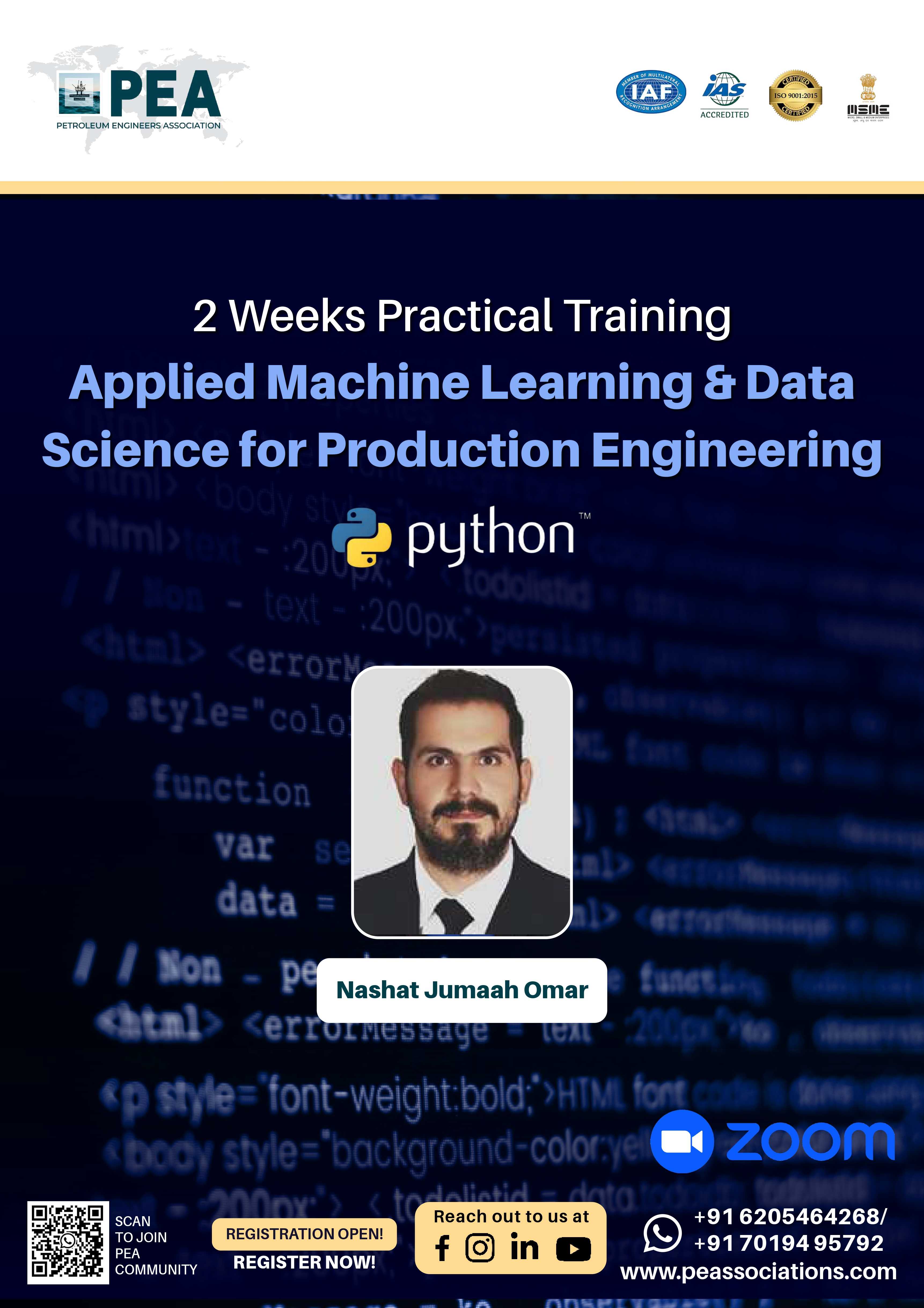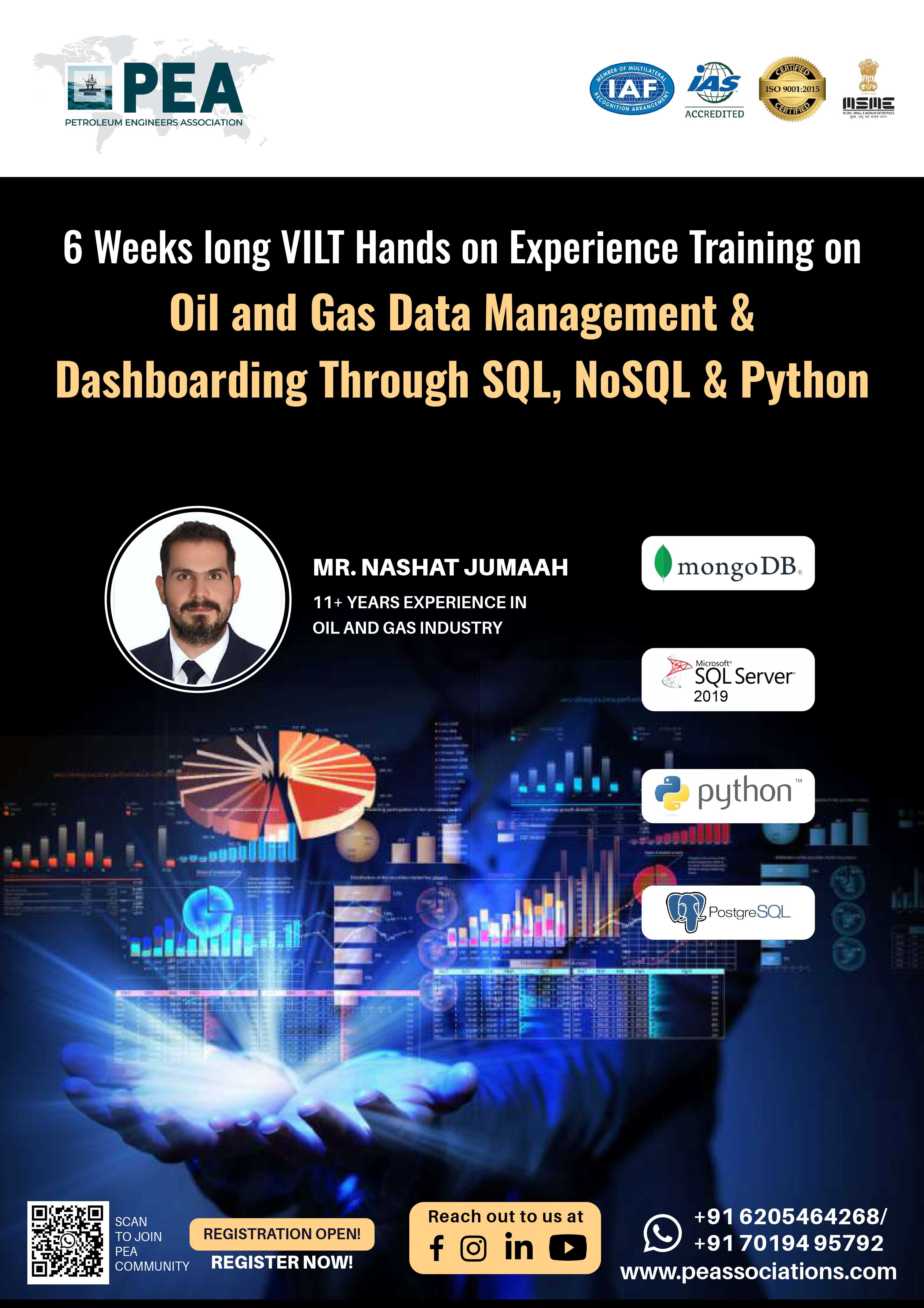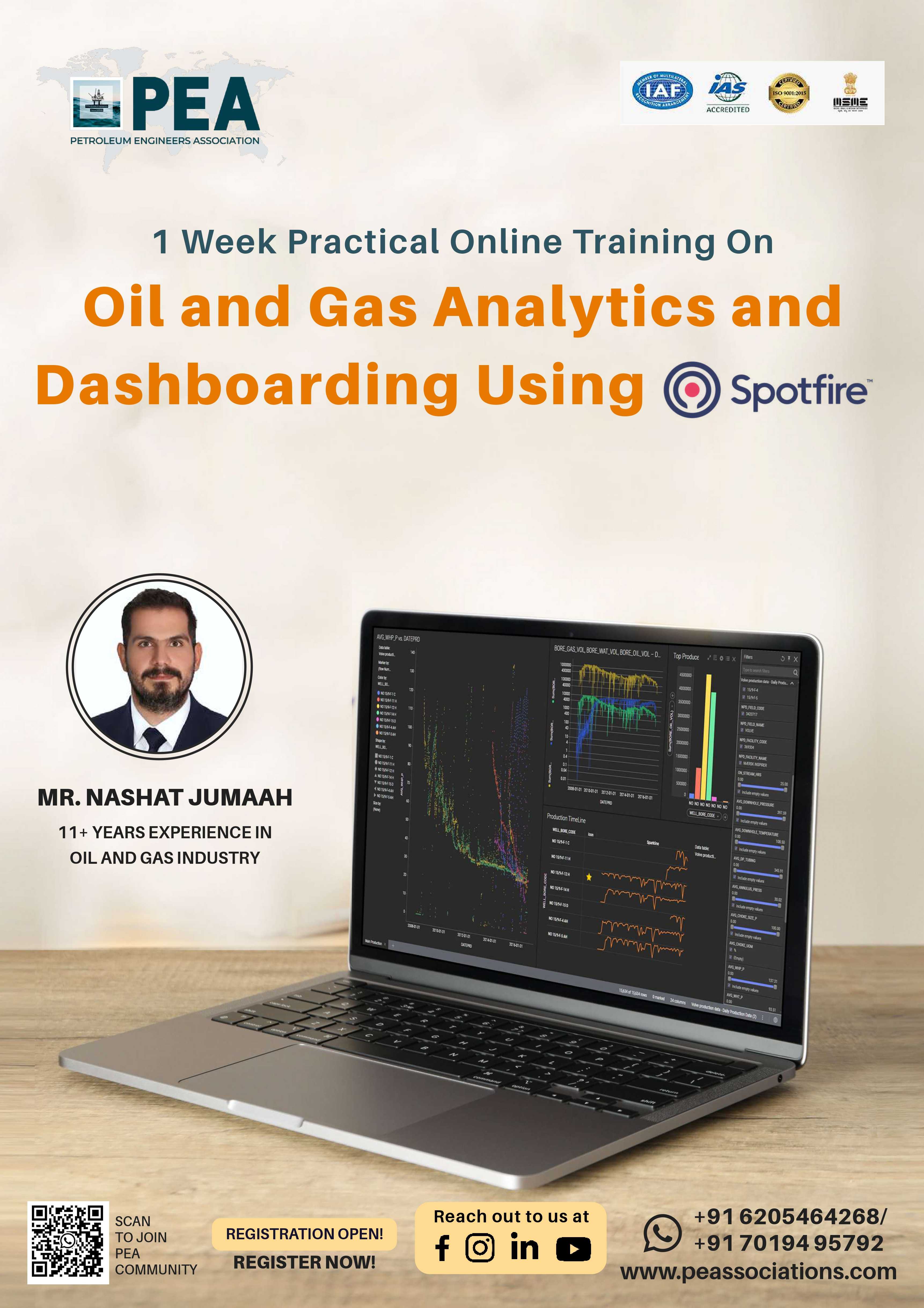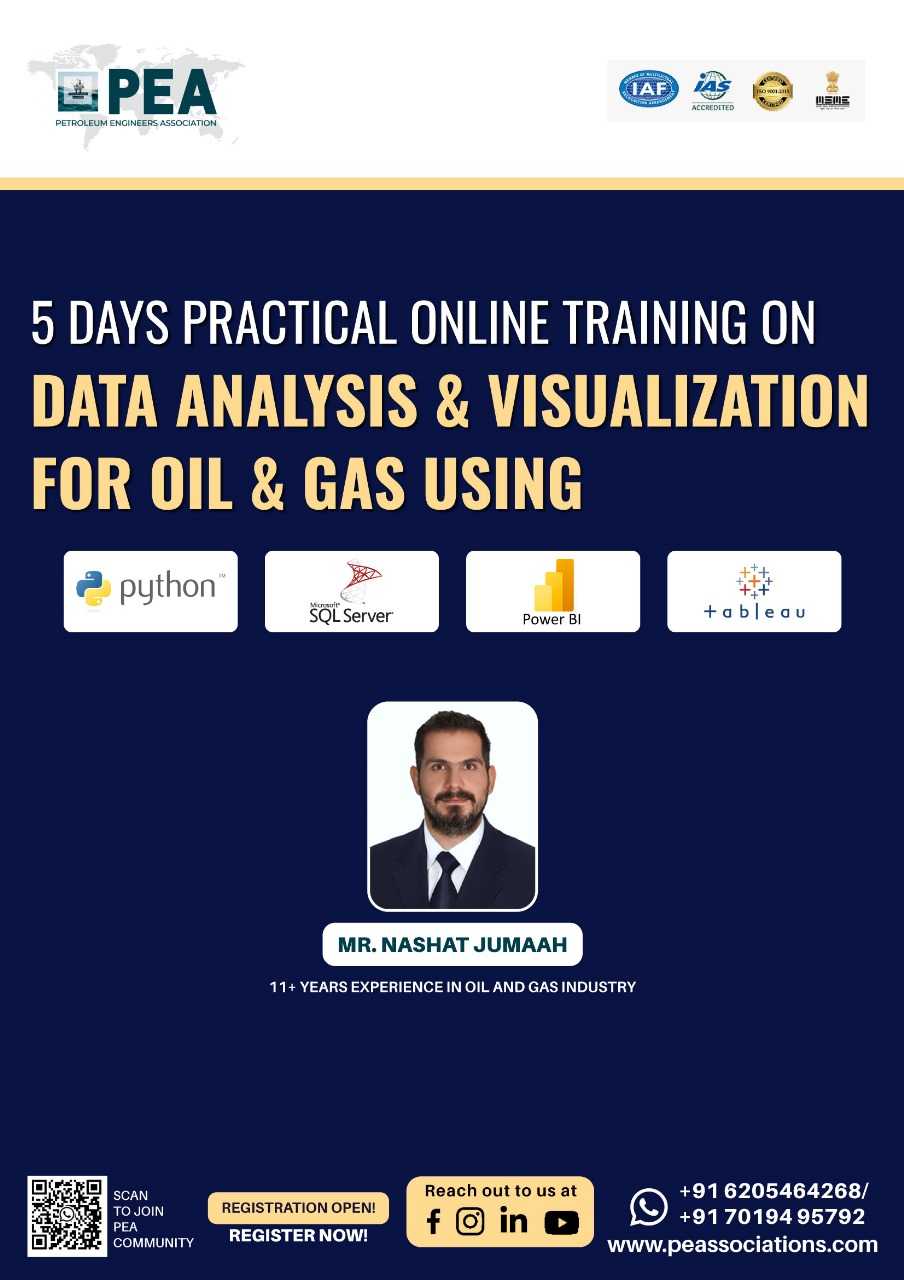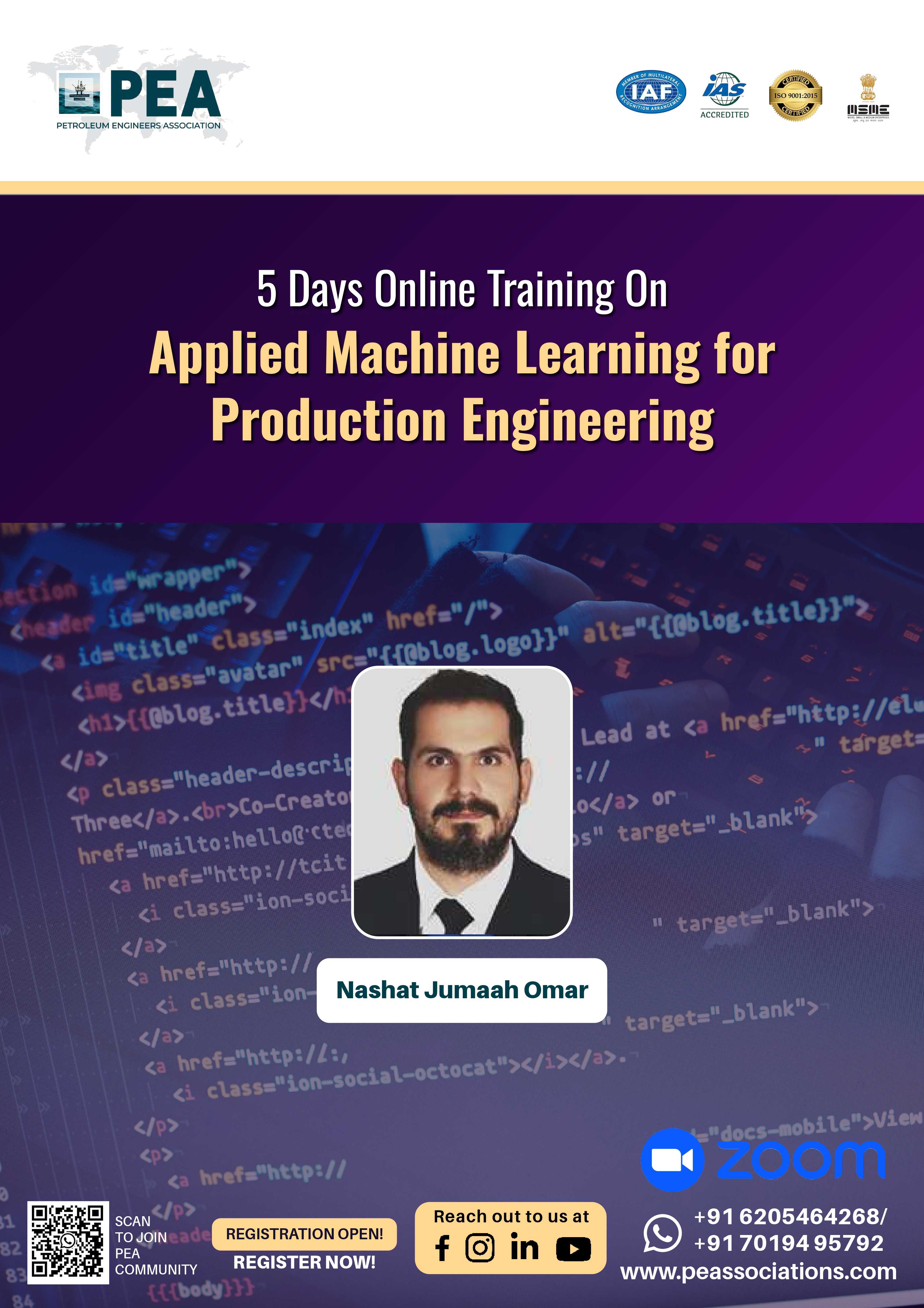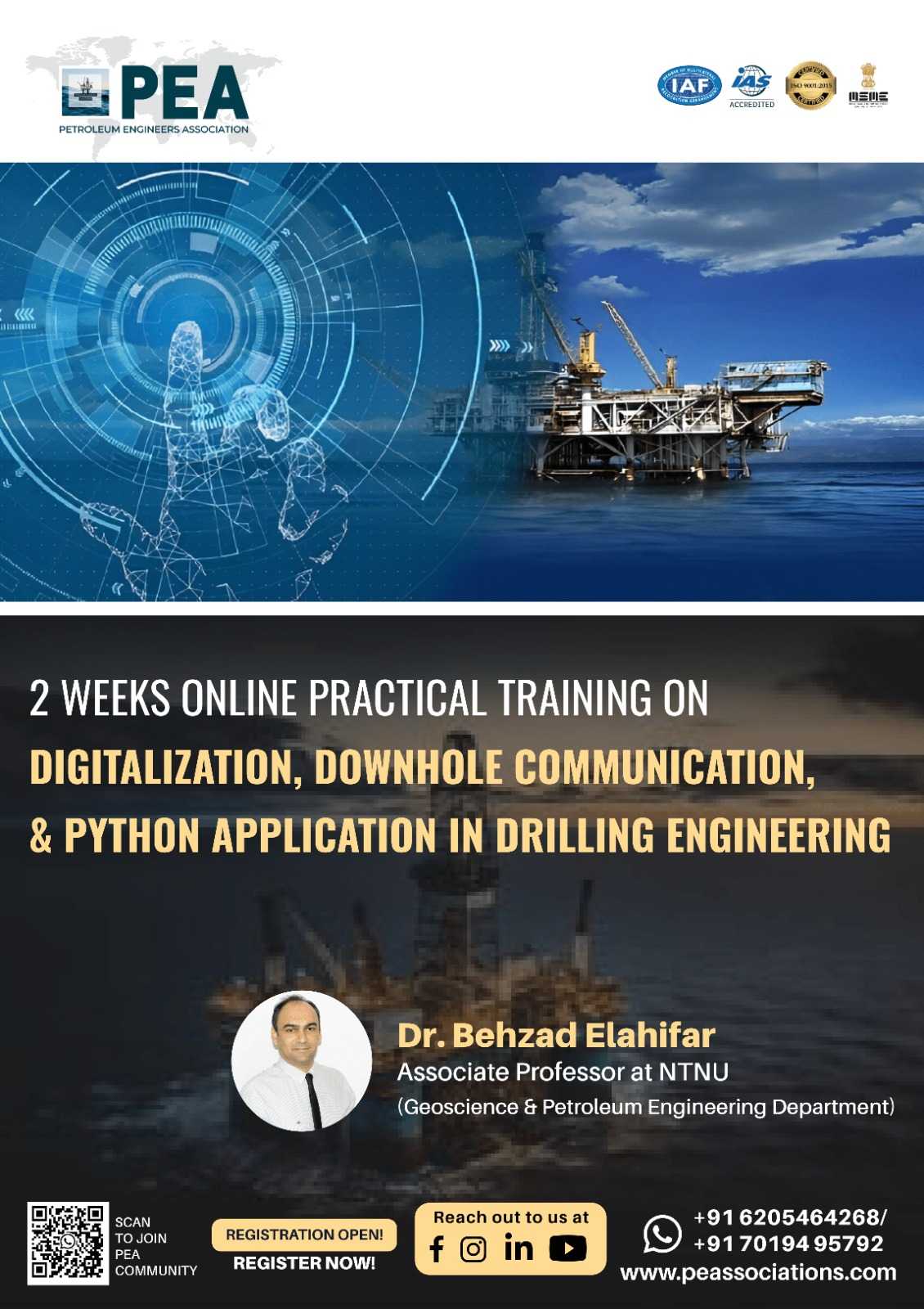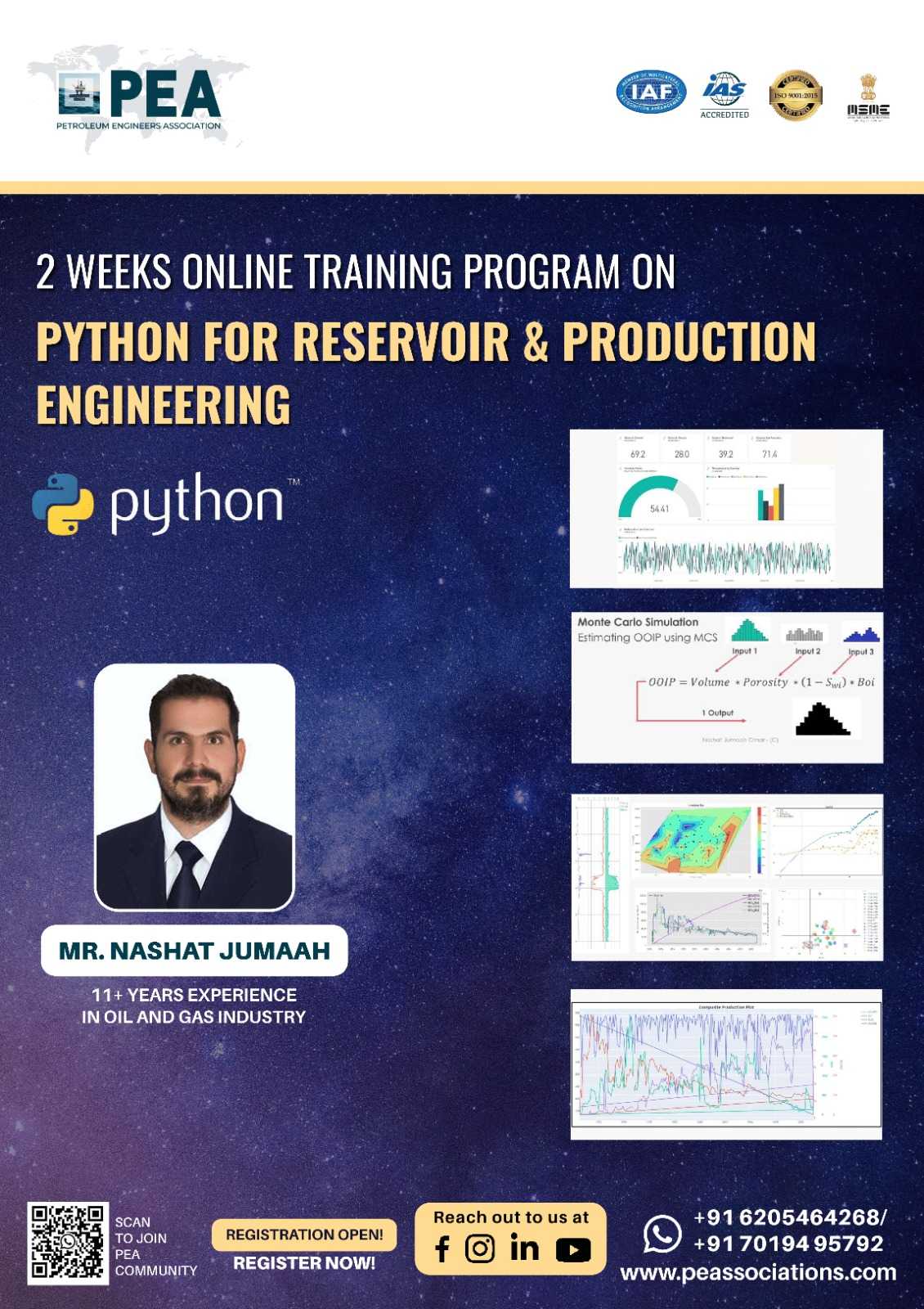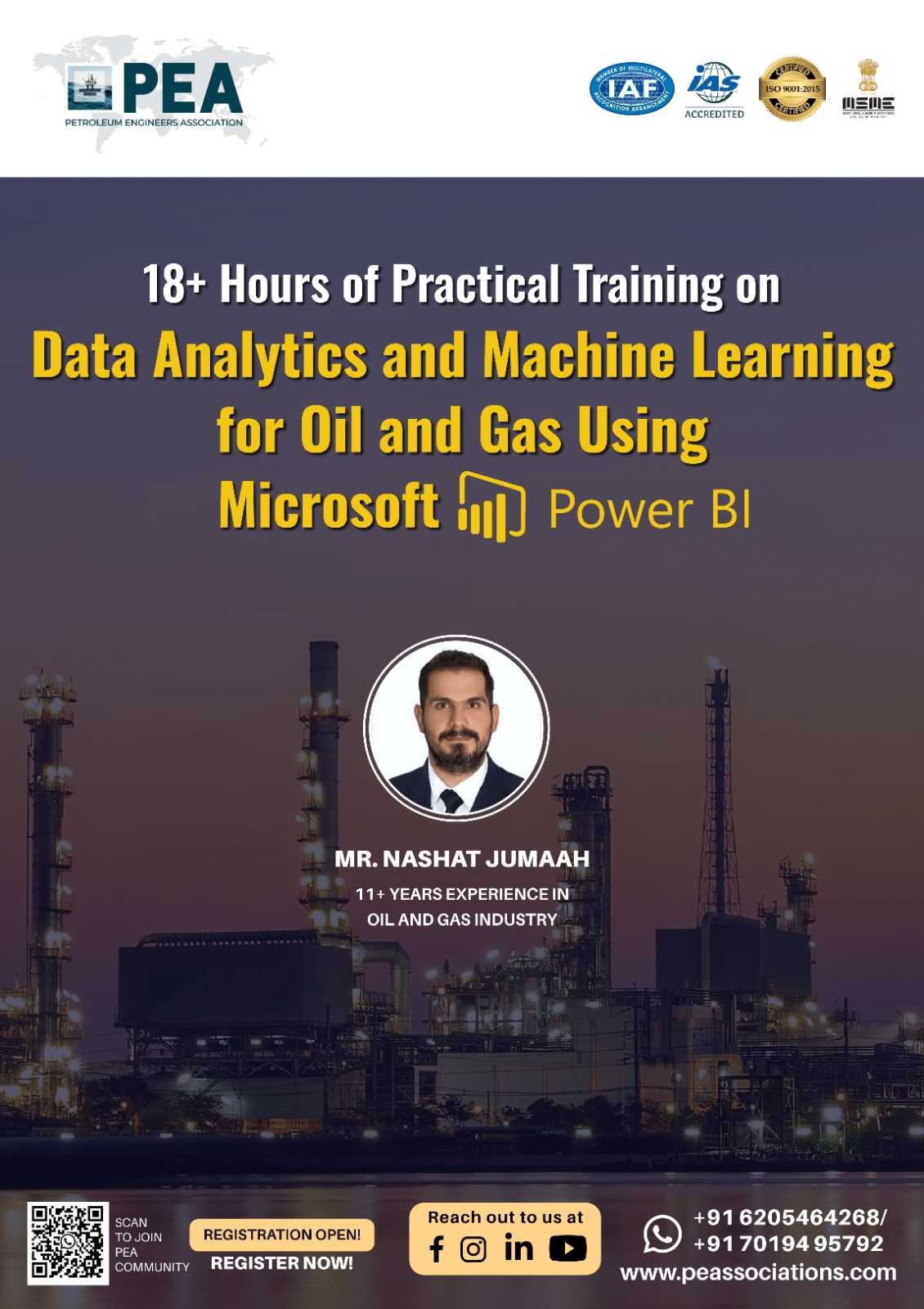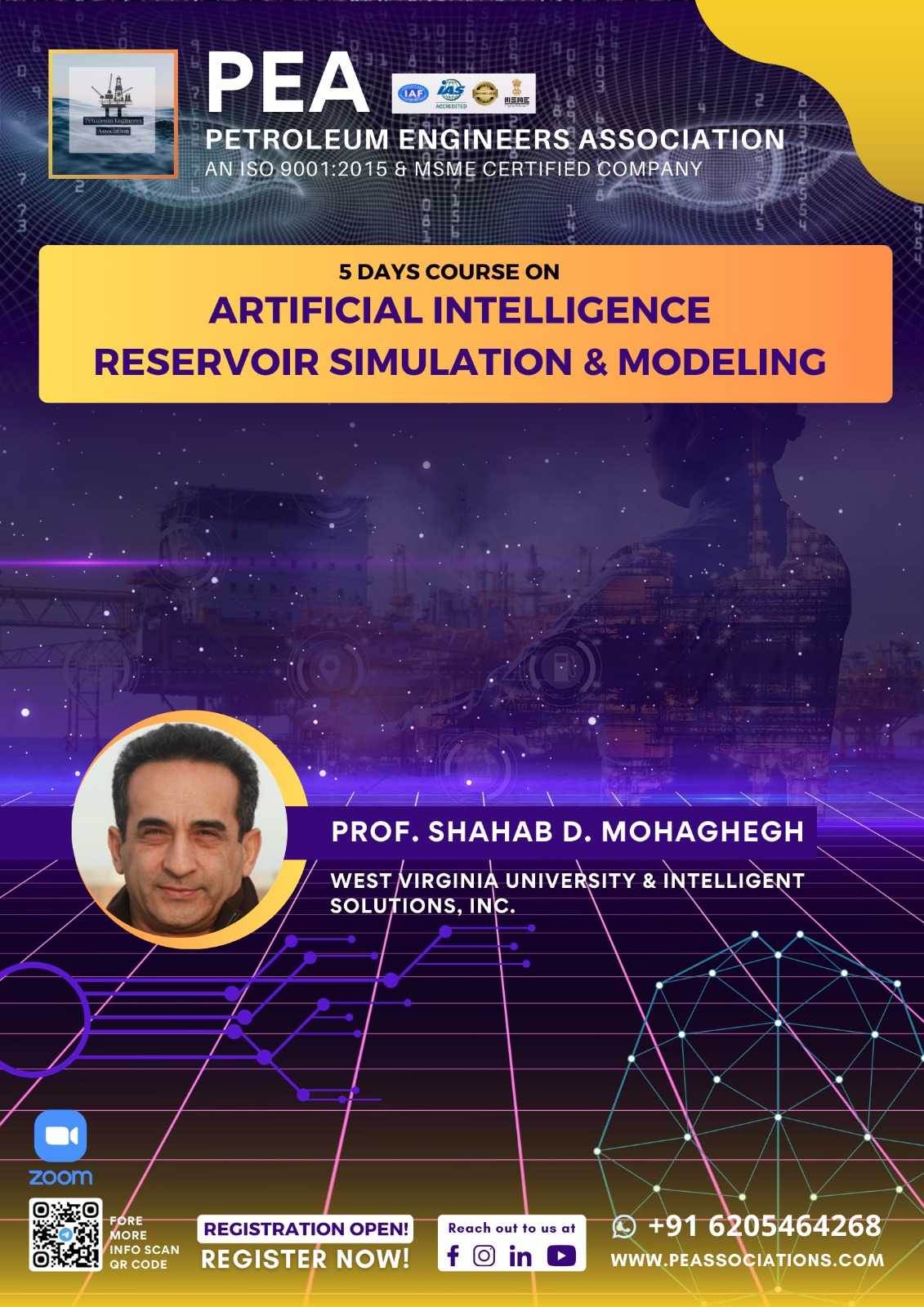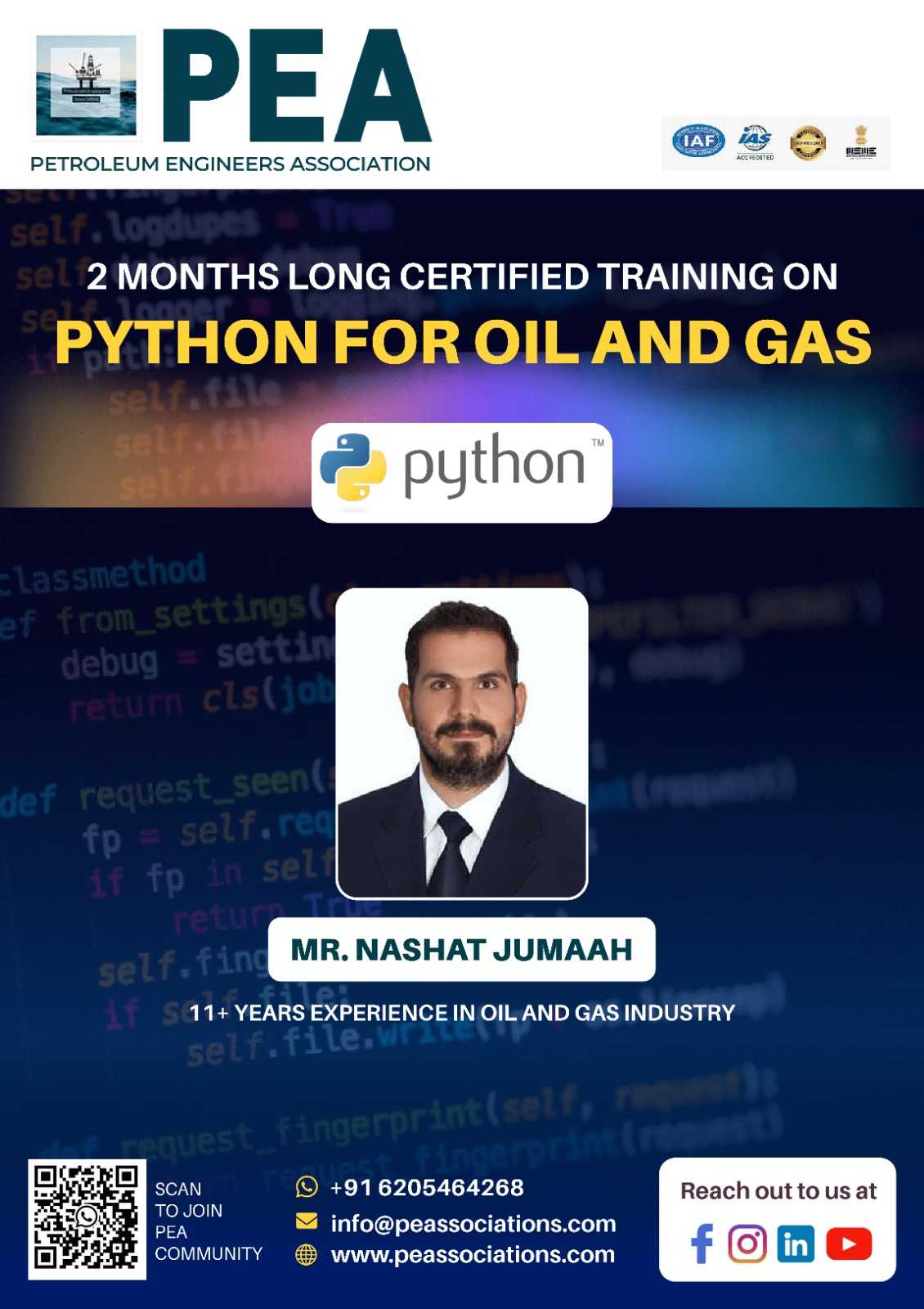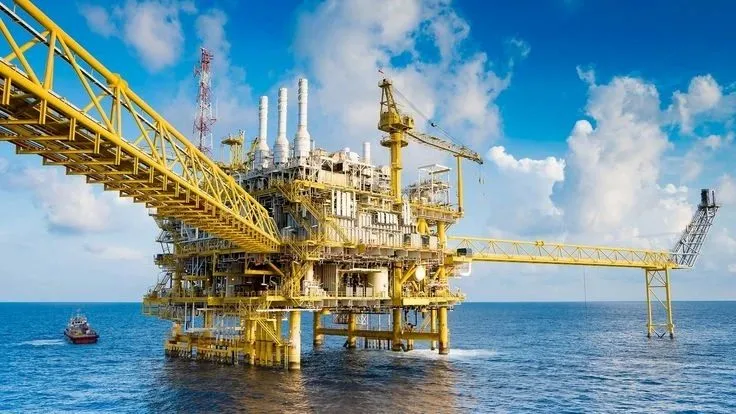| Code | Date | Time | Duration | Location | Currency | Team of 10 Per Person | Team of 7 Per Person | Early Bird Fee Per Person | Normal Fee Per Person |
|---|---|---|---|---|---|---|---|---|---|
| MLOG26 | 27 Jun - 16 Aug 2026 | 9 PM Indian Time |
2 Hours Per Day
|
Zoom Online
|
USD
|
1500
|
1650
|
1850
|
2500
|
The Classes Will be Online Via Zoom for 8 Weeks (Sat & Sun) Only.
Boost your team's skills and your budget! Enjoy group discounts for collaborative learning. Send an inquiry to info@peassociations.com.
Machine Learning For Oil and Gas Using Python
Description
In the ever-evolving field of oil and gas, leveraging data through machine learning has become essential to achieving operational efficiency and competitive advantage. This course provides a comprehensive introduction to machine learning using Python, with applications directly relevant to upstream, midstream, and downstream operations. Participants will gain practical insights into data-driven decision-making and analytics, empowering them to apply machine learning to complex industry challenges.
Through expert guidance and hands-on sessions, attendees will work with datasets unique to the oil and gas sector, covering topics such as production forecasting, equipment monitoring, and predictive maintenance. By the end of this course, participants will have a solid foundation in machine learning and Python, equipped to lead data-driven initiatives in their organizations.
Demo Class
The oil and gas industry is increasingly data-intensive, with vast amounts of information generated daily. Machine learning offers a pathway to turn this data into actionable insights that can significantly enhance operational decision-making and efficiency. Designed for industry professionals, this course delves into machine learning essentials using Python, giving participants the tools they need to address industry-specific challenges and leverage data to drive impactful solutions.
Understand the core principles of machine learning and its applications in oil and gas.
Gain proficiency in Python programming for data manipulation and analysis.
Apply machine learning techniques to production optimization, predictive maintenance, and asset monitoring
Develop data-driven models to support decision-making in exploration and production
Evaluate the impact of machine learning solutions on operational efficiency and cost-effectiveness.
This course combines lectures with interactive, hands-on sessions, allowing participants to practice machine learning techniques in real-time. Guided by industry experts, attendees will work with datasets representative of oil and gas operations, learning to implement and interpret machine learning models relevant to the sector.
Enhanced data analytics capabilities in teams, leading to optimized production and reduced operational risks.
The ability to harness machine learning for predictive insights and smarter asset management.
Improved decision-making processes, informed by robust data-driven models.
Confidence in applying Python-based machine learning techniques to oil and gas scenarios
Advanced skills in data analytics, increasing their value and effectiveness within their roles
Practical knowledge of handling industry-specific datasets and creating predictive models for real-world applications.
Reservoir Engineers
Production engineers
Chemical engineers
Drilling engineers
Geologists and petrophysics
AL and workover engineers
Undergraduate students
Python Module:
This module will cover all Python basics to get started and feel confident in writing code and maintaining future code bases.
Module 1:
- Introduction to Python for the Oil and Gas Industry
- Python Tools and Package Options
- Data Types and Basic Python Functions
- Introduction to Data Casting
- Introduction to String and String Manipulation
Module 2:
- Data Containers (Lists and Dictionaries)
- Operations on Containers
- Introduction to Loops
- Introduction to Branching (IF Statements)
- Mixing Loops and Branching
- Introduction to User Functions
Module 3:
- Working with Arrays and Applying Mathematics to Them
- Working with Tabulated Data
- Basic Pandas Functions for Data Manipulation
- Introduction to Visualization
- EDA – Exploratory Data Analysis
Machine Learning Module
This module will introduce the trainee to machine learning concepts and various uses and implementations. In this module, users will learn how to utilize Python as a tool for various ML-related projects.
Module 4:
- Processing Tabulated Data
- Data Filtering, Cleansing, and Outlier Handling
- Imputations and Its Methodologies
- Feature Engineering
- Plotting for ML (Distribution, Pair Plots, Box, LMPlots, Heat)
- Machine Learning Workflows (Putting Everything in Place)
Module 5:
- Introduction to Machine Learning Types
- Introduction to Unsupervised Learning
- K-Means Clustering using Sklearn
- Clustering Oil Wells Based on Petrophysical Properties
- Clustering Gas Wells Based on Liquid Loading Index
- Hierarchical Clustering and Dendrogram
- Hierarchical Cluster-Based Water Cut in Oil Wells
Module 6:
- Introduction to Regression
- Basics of Regressions using NumPy Poly1d
- Introduction to Linear Regression in SKlearn
- Multivariate Regression in ML
- Regression Applied to Oil and Gas Production Prediction
- Evaluation of Regression Models
- Regression Sensitivity Analysis using OVAT
- Predicting Drilling Performance Using Multilinear Regression
Module 7:
- Introduction to Classification Problems
- Classifications as Applied to Oil and Gas Industry Problems
- Introduction to Logistic Regression
- Introduction to KNN
- Classifying Flow Stability in Oil Wells
- Comparing Decline Curve Analysis to ML Regression
- Introduction to Support Vectors (SVM)
- Predicting Geomechanical Properties using SVM
- Shale Formation Simulation Classification
Module 8:
- Introduction to Neural Networks
- Introduction to Deep Learning
- Introduction to Fuzzy Logic
- Applications of NN in the Oil and Gas Industry
- Model Optimization
- Dashboarding and ML Implementation
- Notes on OOP Approach and Production Grade Code
On successful completion of this training course, PEA Certificate will be awarded to the delegates.

Mr. Nashat J. Omar With over 12+ years of specialized experience in petroleum engineering, focus on production and flow assurance brings valuable expertise to the energy sector.
He possess a strong command of Python and C#, which empowers him to create efficient data management solutions and streamline workflows.
His collaborative nature and adaptability enable him to thrive in multidisciplinary settings, where he consistently contributes to success through innovative problem-solving.
He is dedicated to continuous learning and staying ahead of industry advancements, ensuring that he can enhance operational efficiency and guarantee robust flow assurance.

